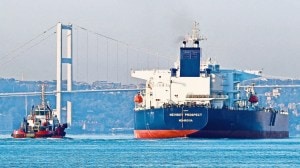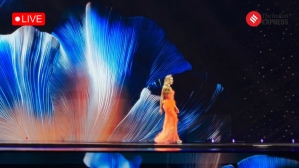India, Singapore to launch free-trade talks
India and Singapore will take an important step closer towards a bilateral free trade agreement (FTA) when Singapore Prime Minister Goh Chok...

India and Singapore will take an important step closer towards a bilateral free trade agreement (FTA) when Singapore Prime Minister Goh Chok Tong visits New Delhi in mid-April 2003. The two governments have taken a decision “in principle” to negotiate what will be called a Comprehensive Economic Cooperation Agreement (CECA).
A joint study group (JSG) from both countries concluded its meeting in Singapore this week, agreeing to place concrete proposals before the two governments so that the actual process of negotiating a specific agreement can begin after Goh’s April visit. The group will meet next month in New Delhi before placing its final recommendations before the two governments.
The Indian side, led by deputy governor of the Reserve Bank of India Rakesh Mohan, informed its Singaporean counterpart that the government of India has taken an “in principle” decision to work towards a CECA. It may be recalled that Singapore had proposed an FTA but India would like the agreement to cover issues going beyond trade and including investment, movement of people, tourism and the knowledge economy, hence a CECA.
Recession-hit Singapore, facing the lowest rates of growth in its recent history and unprecedented levels of unemployment, has launched an FTA spree. It has signed FTAs with Japan, Australia, New Zealand and the four-nation European Free Trade Area (EFTA), comprising Norway, Iceland, Switzerland and Liechtenstein. It is also negotiating an FTA with the United States and Thailand. Singapore has also agreed to work towards an FTA with China.
It may be noted that the actual process of negotiating a CECA may take several months. The recently initialled Singapore-Australia FTA was negotiated over a two-year period. Interestingly, the Singapore-Australia FTA includes provisions relating to easing service sector regulations ranging from banking to higher education.
A major issue in an FTA with a city-state and entrepot like Singapore will be the problem of re-exports. The US government is reportedly facing stiff resistance at home to an FTA with Singapore from domestic business concerned with Singapore’s allegedly “weak” monitoring of third country re-exports, especially from China and ASEAN countries.
India will insist on local content clauses, as it has with Nepal and Sri Lanka, to ensure that cheaper Chinese goods are not re-exported to India through Singapore. The India-Singapore FTA will include a negative list of items that remains to be drawn up. Singapore is expected to include some agricultural products in its negative list while India may include some manufactured goods.
From the Singapore side, the JSG was headed by Lim Chin Beng, a former envoy to Japan. Mohan and ambassador Lim had been mandated to explore the benefits of an Indo-Singapore comprehensive economic agreement and fields of mutual interest such as life science, infotech and computer technology.





- 01
- 02
- 03
- 04
- 05


























